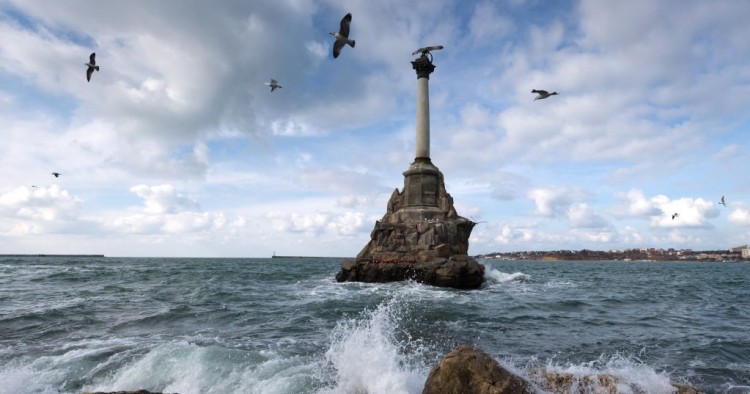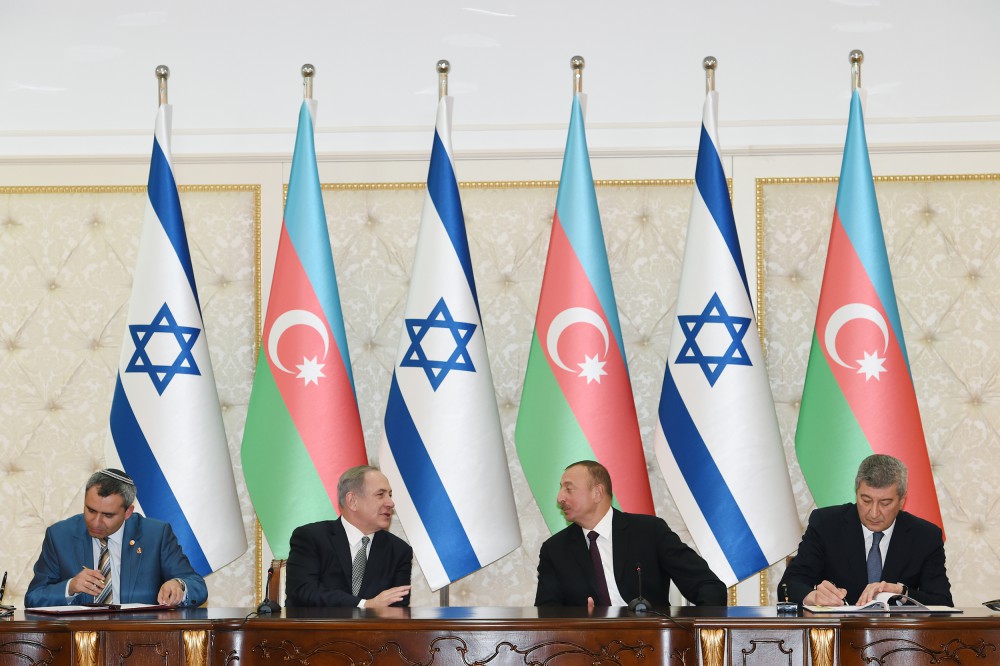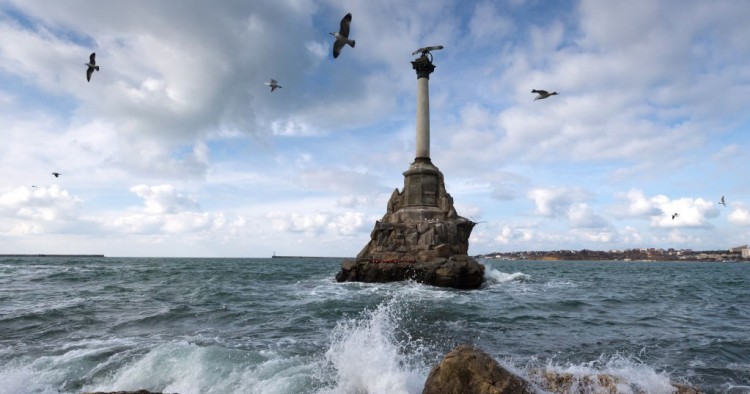
Zoran IVANOV, PhD(*)
The Black Sea's story is one of ancient trade routes and modern pipelines, a legacy of empires and a theater for today's strategic ambitions. It stands as a historic bridge between continents and cultures, now enshrouded by the shadows of war and conflict. To the north, the war in Ukraine simmers; to the south, the Israel-Gaza conflict persists; to the east, a fragile peace holds in Karabakh; and to the west, the tumult of Kosovo and Bosnia lingers. In this context, the Black Sea emerges as a pivotal arena for a power struggle that could shape the trajectory of global politics in the coming years.
Strategic Location and Economic Powerhouse
The Black Sea, a historic nexus once traversed by Byzantine traders and Ottoman galleys, now resonates with the undercurrents of modern geopolitical rivalries. Serving as a crucial link between Europe, Asia, and the Middle East, it is pivotal not only for maritime trade but also as a channel for energy supplies, attracting attention from global and regional powers alike. Pipelines crisscrossing its depths to meet Europe's growing energy needs further underscore its significance.
The Russian Resurgence
Russia is on the brink of realizing a long-held strategic objective along its Western border. Its primary aim is to secure Crimea from the mainland and strengthen naval dominance from Sevastopol, thereby deterring Western naval forces in the Black Sea. Despite changing global dynamics, Russia's historical ambitions in this region remain steadfast. The Kremlin's firm control over Crimea and parts of Eastern Ukraine is widely interpreted as a strategy to reassert its naval dominance and cement its role as a crucial energy supplier to Europe. These maneuvers have heightened concerns among Western powers and regional states, who perceive Moscow's assertiveness as a direct challenge to the existing geopolitical order.
China and Iran: The Silent Beneficiaries
In the backdrop of this unrest, China and Iran emerge as silent beneficiaries. China's objectives are twofold: securing a stable route through the Black Sea for its Belt and Road Initiative and ensuring the safety of the southern oil and gas supply chain from the Middle East, including critical Iran’s ports in Bandar Abbas and Chah Bahar. For Iran, limiting Western influence is paramount, as it provides greater freedom to maneuver within the region. While Iranian drones may leg behind others, their affordability makes them a valuable asset for Russia, enabling the deployment of drone swarms. Both nations regard the Black Sea as a potential pivot point where power dynamics could tilt in their favor.
Turkiye's Strategic Balancing Act in the Black Sea
Turkiye's control over the vital Bosporus and Dardanelles straits places it at the epicenter of the Black Sea's geopolitical narrative. The Montreux Convention endow Turkiye geostrategic responsibility to balances regional power dynamics, allowing management of naval passage, including military vessels, during peacetime and wartime. Additionally, as a founding member, Turkiye has a critical role in the Black Sea Economic Cooperation (BSEC) that enhances regional collaboration, economic integration, and political dialogue among Black Sea nations. This cooperation bolsters Turkey's role as a regional leader, facilitating its aim to establish a zone of peace, stability, and prosperity in the Black Sea region. As a NATO member with distinct regional aspirations, Turkiye performs a diplomatic tightrope walk, carefully balancing its commitments to Western alliances against a pragmatically cultivated relationship with the East. The evolving conflict in Ukraine adds layers of complexity to Turkiye's already intricate position. Criticisms suggesting that Turkiye should alter its domestic or foreign policies often stem from perspectives rooted mostly in far West, overlooking the geographical responsibility and intricate balance Turkiye maintains. One can deny or argue this reality, but if Western nations were in a similar geographical and geopolitical situation, their responses might mirror, if not exceed, Turkiye's cautious stance.
NATO's Eastern Concerns
For NATO, maintaining stability in the Black Sea is essential for the security of Europe. The alliance is actively working to counter Russian territorial advances by bolstering the defense capabilities of its Black Sea member states, yet a recent Stars and Stripes magazine analysis highlights a worrying trend of diminished NATO naval presence in the region. This reduction in strategic presence has inadvertently emboldened resurgent powers, increasing their assertiveness, and minimize the deterrence role.
Therefore, it's imperative for NATO to bolster trust and collaboration among its members. Such solidarity is crucial not only for maintaining regional peace and security but also for countering the influence of malevolent resurgent states.
EU’s Dilemma: Expansion vs. Trust
The European Union faces a pivotal challenge in maintaining a strong position in the Black Sea region amidst shifting power dynamics. Recent efforts to expand influence by offering membership to Ukraine and Georgia have sparked internal discord, threatening EU unity. This expansion strategy raises critical questions about its benefits versus losses, potential erosion of trust by excluding Turkey and the Balkans, and the long-term sustainability of integrating Ukraine and Georgia. Such complexities and the perceived lack of a clear strategic vision contrast starkly with the more decisive plans of other regional players, underscoring the EU’s need to solidify its stance in response to evolving geopolitical situations.
War in Ukraine: A Diplomatic Tipping Point
The ongoing war in Ukraine is poised to irreversibly alter the power dynamics in the Black Sea region. Russia's control of Crimea, while significant, offers limited strategic advantage without direct land access. Consequently, Russia appears determined to retain its grip on the occupied regions of Kherson, Zaporizhzhia, Donbas, and Luhansk at any cost. This control not only consolidates Russia’s hold over the critical Sevastopol port, safeguarding the main base of its Black Sea naval fleet, but also prevents potential encirclement by US or NATO forces.
These territorial changes threaten to disrupt the existing power equilibrium in the Black Sea, potentially reshaping regional and global relationships in profound ways. Russia's military expansion bolsters its naval dominance in the area, allowing it to exert influence far across the sea and pose a potential threat to other littoral states. The paramount goal for these states will be to establish a new balance of power while ensuring the maintenance of peace in an increasingly volatile region.
A Region at a Crossroads
As nations vie for control and influence in the Black Sea, it stands as a vivid barometer of international relations, mirroring the intensifying global tensions.
The narrative of the Black Sea tells the story of a region that has historically bridged continents and cultures, now finding itself at the epicenter of a power struggle with the potential to redefine the contours of global politics in the foreseeable future.
* Asst. Professor at TOBB ETU ; Senior Advisor at RINK- ISTITIUTE in Ljubljana, Slovenia ; Adjunct Faculty at Arizona State University, AZ, USA
** Image: https://www.mei.edu/publications/black-sea-conflicts-militarization-and-peacebuilding
© 2009-2025 Avrasya İncelemeleri Merkezi (AVİM) Tüm Hakları Saklıdır
Henüz Yorum Yapılmamış.
-
 DAĞLIK KARABAĞ’DA 31 MART 2020’DE YAPILAN SAHTE 'SEÇİMLER' - 08.04.2020
DAĞLIK KARABAĞ’DA 31 MART 2020’DE YAPILAN SAHTE 'SEÇİMLER' - 08.04.2020
Sabir ŞAHTAHTI 08.04.2020 -
 TÜRKİYE’S PLACE IN CENTRAL ASIA IN THE POST-USSR ERA - 11.05.2023
TÜRKİYE’S PLACE IN CENTRAL ASIA IN THE POST-USSR ERA - 11.05.2023
Deniz ÜNVER 11.05.2023 -
 AZERBAIJAN AND ISRAEL—GENUINE MUSLIM-JEWISH RELATIONS
AZERBAIJAN AND ISRAEL—GENUINE MUSLIM-JEWISH RELATIONS
Alexander MURINSON 06.01.2017 -
 BALKANLAR: NE AB’NİN ARKA BAHÇESİ NE DE HERHANGİ BİR ÜLKENİN OYUN SAHASI - DAILY SABAH - 24.10.2018
BALKANLAR: NE AB’NİN ARKA BAHÇESİ NE DE HERHANGİ BİR ÜLKENİN OYUN SAHASI - DAILY SABAH - 24.10.2018
Teoman Ertuğrul TULUN 02.11.2018 -
 BAŞBAKAN YARDIMCISI SAYIN TUĞRUL TÜRKEŞ’İN HOLOKOST ANMA TÖRENİNDE YAPTIĞI KONUŞMA
BAŞBAKAN YARDIMCISI SAYIN TUĞRUL TÜRKEŞ’İN HOLOKOST ANMA TÖRENİNDE YAPTIĞI KONUŞMA
Tuğrul TÜRKEŞ 27.01.2017



